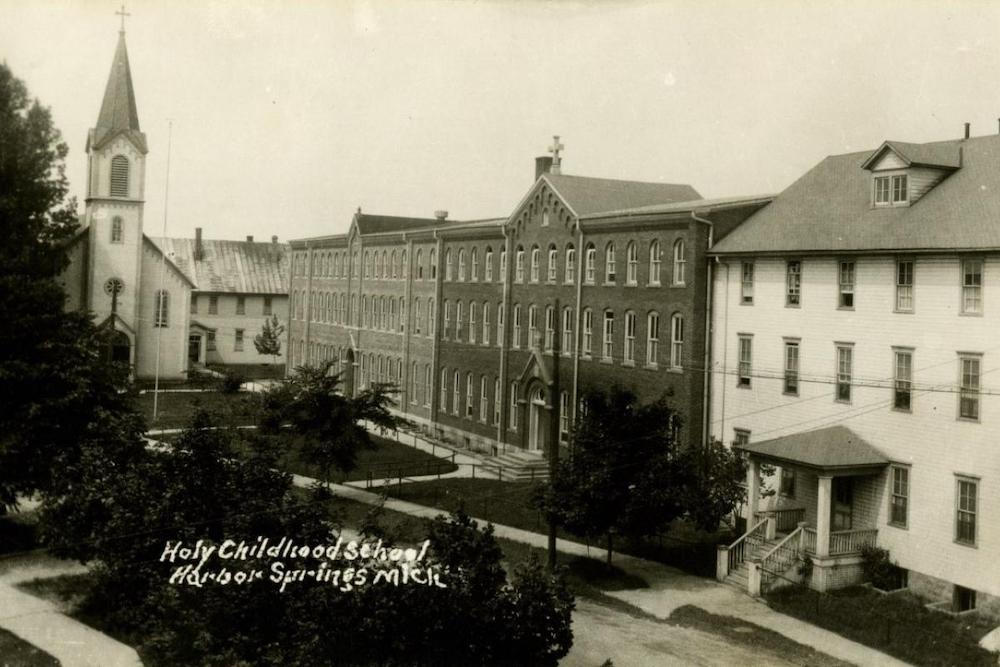
- Details
- By Jenna Kunze
Fourteen tribal nations, tribal schools and colleges, and state organizations will initiate community projects to capture, preserve, and educate about the impact of the Federal Indian Boarding School era, thanks to $411,000 in funding announced by the National Endowment for the Humanities on April 10.
From the early 1800s through the 1960s, federal policy supported the mass removal of hundreds of thousands of Indigenous children from their homes by supporting the operation of more than 500 Indian boarding schools. Natives were sent to these institutions throughout the country for the dual purpose of cultural assimilation and land dispossession, according to the 2022 investigative report on the Federal Indian Boarding School Initiative. An estimated tens of thousands died at these schools, and were buried away from their homes, families, and communities.
As a result, NEH has partnered with the Department of the Interior to collect oral histories and digitize federal records documenting the experiences of survivors and descendants of Federal Indian boarding schools. In August 2023, NEH announced a funding opportunity for federally recognized tribes, tribal nonprofits, and state and local government organizations who work with tribal communities for research, community engagement, tribal history collection, public programs, and educational projects.
Recipients of the funding include: Cowlitz Indian Tribe, in Washington, that will conduct ground-penetrating radar on the grounds of St. Mary’s Boarding School to detect unmarked burial grounds; Diné College, in Arizona, that will create an exhibit of portraits of community members who attended boarding schools; History Colorado, in Colorado, to support the collection of oral histories documenting the experience of Ute attendees of boarding schools; Mt. Edgecumbe High School, in Alaska, a still operational boarding school now run by the Bureau of Indian Education, to support curricula development to teach Alaska boarding school history at Mt. Edgecumbe High School; and North Shore Community Land Trust, in Hawai’i, to support community-based oral history research and story-mapping of the Waialeʻe Industrial School for Boys and the Kawailoa Industrial School for Girls.
For future funding opportunities for projects examining the history and legacy of the Federal Indian boarding school system, visit the NEH website.
Tell Us What You Think
More Stories Like This
50 Years of Self-Determination: How a Landmark Act Empowered Tribal Sovereignty and Transformed Federal-Tribal RelationsBreaking: Lumbee Tribe Set for Federal Recognition Under NDAA Passed by Senate
Treasury Finalizes Tribal Tax Rules Ending Decades of Uncertainty
Finalized Tax Rules Seen as Historic Win for Tribal Economies
Cherokee Nation Launches Digital Dictionary to Support Language Revitalization
Help us defend tribal sovereignty.
At Native News Online, our mission is rooted in telling the stories that strengthen sovereignty and uplift Indigenous voices — not just at year’s end, but every single day.
Because of your generosity last year, we were able to keep our reporters on the ground in tribal communities, at national gatherings and in the halls of Congress — covering the issues that matter most to Indian Country: sovereignty, culture, education, health and economic opportunity.
That support sustained us through a tough year in 2025. Now, as we look to the year ahead, we need your help right now to ensure warrior journalism remains strong — reporting that defends tribal sovereignty, amplifies Native truth, and holds power accountable.
 The stakes couldn't be higher. Your support keeps Native voices heard, Native stories told and Native sovereignty defended.
The stakes couldn't be higher. Your support keeps Native voices heard, Native stories told and Native sovereignty defended.
Stand with Warrior Journalism today.
Levi Rickert (Potawatomi), Editor & Publisher


